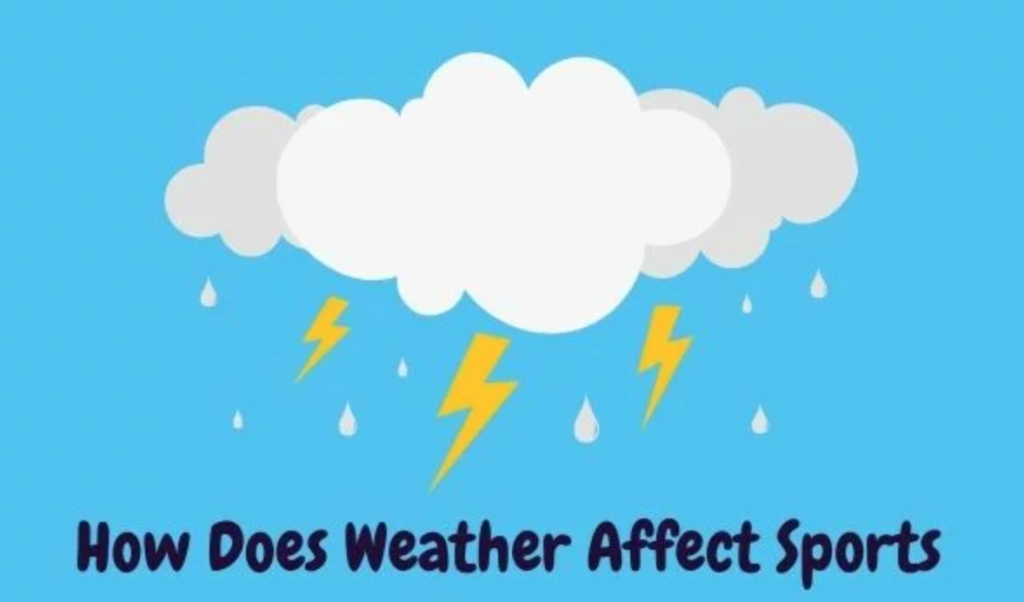
Have you ever tuned into a weather report immediately after catching the news, not for farming insights but to assess how the upcoming weather might influence a sports match? While seemingly uncommon, weather forecasts are crucial in sports betting, as they can significantly affect game outcomes by influencing player performance.
Weather’s Influence on Players and Games
Various weather elements like snow, rain, and sunshine can have profound effects on athletes’ psychological state, form, and stamina. Harsh conditions can force players to exert more effort than usual, potentially straining their bodies and altering their performance levels. Such environmental challenges are crucial to consider in sports betting, as different regions experience diverse weather conditions that impact gameplay.
Ignoring weather reports can lead to misguided decisions about sports matches, especially if you haven’t considered how weather might affect playing conditions. Whether it’s extreme heat or cold, players—like anyone else—are susceptible to the effects, which could alter the match’s outcome.
Specific Weather Conditions and Their Effects
Not all sports are equally affected by weather. Indoor games like badminton and ice hockey are less influenced by external conditions. However, in outdoor sports, weather plays a pivotal role. For example, cold weather can reduce players’ mobility as their bodies conserve energy. Snow might cover a pitch, impacting the ball’s bounce and requiring players to exert more force in their shots.
In cold conditions, fog or mist can reduce visibility, complicating the task for goalkeepers to defend their goals effectively. Similarly, in hot weather, excessive sunshine can increase players’ dehydration levels and diminish visibility, particularly affecting the goalkeepers who need clear vision for optimal performance. Players might also suffer from heatstroke or, in cold climates, hypothermia—conditions that greatly impair their ability to perform.
Adaptation to Local Weather Conditions
It’s also vital to consider whether teams are accustomed to their local weather conditions, especially when evaluating home vs. away team advantages. Local teams generally adapt better to their usual environment compared to visiting teams, influencing the game’s dynamics.
Strategies for Weather-Based Betting
For those betting on sports, a critical strategy is to review the typical weather conditions of the teams’ home countries throughout the year. Understanding how weather changes can affect games allows for more accurate predictions, provided the match is significantly influenced by these conditions. For instance, what is considered mild in one country could be deemed extreme in another, such as temperatures below -15 degrees Celsius in Russia compared to 15 degrees Celsius in parts of Kenya, which may be perceived as very cold.
Rain’s Impact on Sports: A League-by-League Analysis
Rain is arguably one of the most disruptive weather elements in sports, primarily affecting both pitch conditions and player morale. The effect of rain on a game largely depends on the pitch’s drainage capabilities.
In instances of heavy rainfall, a match might be postponed based on league rules or the referee’s discretion. However, in leagues like the Premier League, matches are seldom canceled due to rain, thanks to advanced pitch designs that facilitate quicker water drainage.
Despite these measures, rain can lead to players slipping and falling, increasing the risk of injuries. It also compromises goalkeepers’ ability to make effective saves and generally reduces players’ running speed and accuracy.
Temperature and Humidity: Their Influence on Player Performance
Extreme heat and humidity are particularly challenging. They raise players’ core body temperatures—a condition known as hyperthermia—which decreases muscle endurance. This is crucial because muscle endurance involves the muscles’ ability to contract repeatedly or sustain a contraction over a long period. High temperatures and humidity shift energy production from aerobic to anaerobic processes, leading to quicker depletion of muscle energy reserves and reduced blood flow to the heart. Consequently, this reduces the heart’s efficiency in pumping oxygenated blood back to the body.
Dehydration is another significant concern under these conditions. It occurs when fluid intake does not match the energy expended, especially since players typically cannot hydrate until a break in the action. Prolonged dehydration can lead to severe health issues and significantly impair a player’s performance.
Understanding how different weather conditions, from rain to heat and humidity, affect players can be pivotal in predicting sports outcomes. For enthusiasts and bettors alike, considering these factors can provide crucial insights into potential game dynamics and player performances, allowing for more informed decisions and predictions.







